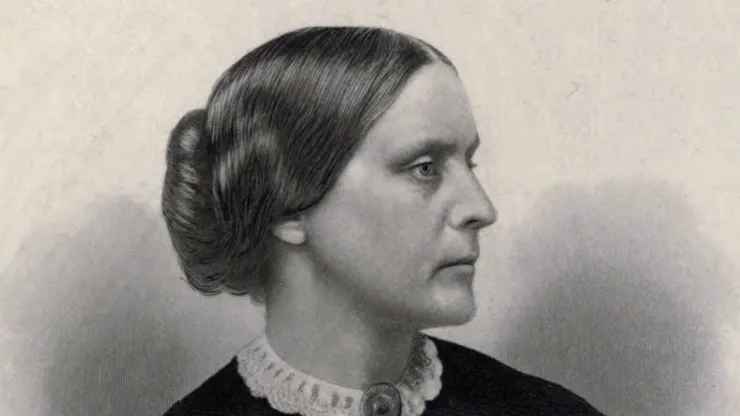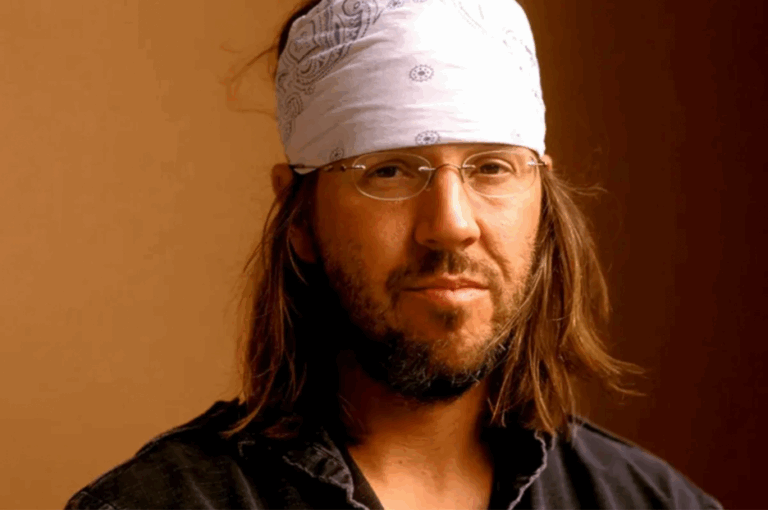In ‘The Soul of Civility,’ Alexandra Hudson offers practical ways for individuals to increase civility and build community
Talking Big Ideas.
This week’s guest columnist is Dan Rothschild.
Dan and I worked together at the Mercatus Center at George Mason University when he was Executive Director. One day, over lunch, he asked me if I’d like to start a new training program at Mercatus to help build the communication skills of economists and other academics. I was thrilled by the idea.
That idea turned into the Ewing School. And when I decided to break away and become an entrepreneur, Dan and the broader Mercatus executive team were incredibly supportive – and remain so today.
The essay I’m publishing here is on an issue close to my heart: embracing civility and moving beyond tribalistic polarization. I encourage you to subscribe to Discourse Magazine, an online journal of politics, economics, and culture published by the Mercatus Center, where Reducing Political Polarization by Respecting Human Dignity was first published.
You can also follow Dan on Substack here.
While political polarization is increasing around the world, the peculiar fact of American polarization is that our variety is primarily negative in nature. That is, Americans are increasingly sorting into political teams not because they like what their team stands for, but because they disdain—or even outright hate—the other team.
To take one measure of this, in 1960, only about 1 in 20 Americans said they would be upset by their child marrying someone from the other political party. Fifty years later, that ratio stood at 1 in 3 Democrats and 1 in 2 Republicans. Even as party affinity continues to decrease, distaste for the other party continues to increase: Since 2016, partisans’ belief that members of the other side are “dishonest,” “immoral” or “unintelligent” has gone from a minority position to a majority one. All this is happening against a background of partisans understanding their opponents based on crude caricatures, not actual beliefs.
In her new book “The Soul of Civility: Timeless Principles to Heal Society and Ourselves,” Alexandra Hudson makes the case that these trends are real and disturbing. But she argues that addressing the merger of politics and entertainment and the politicization of the quotidian doesn’t require big, elite-driven social change. Rather, it begins with each of us—and daily decisions we make about how we relate to others.
Acknowledging Human Dignity
Civility is the kind of concept that many of us know but can’t exactly define; we know it by its absence and opposites. Hudson defines it in contradistinction to politeness. “Civility,” she writes, “is a disposition, a way of seeing others as beings endowed with dignity and inherently valuable. Politeness, by contrast, is a technique: it is decorum, mores, and etiquette.” Politeness is easy to fake, and it’s quite possible to be civil without being polite (or vice versa).
In general, we’re doing OK as a society with politeness. This is especially true, Hudson notes, in transactional environments such as Washington, D.C., where politeness is just another way to control and dominate people (that is, to exercise our libido dominandi, a phrase she uses throughout the book). It’s civility—where relations are built on genuine mutuality and respect—where we’re experiencing a deficit.
Hudson’s fundamental insight is that the virtues and values associated with a free and prosperous society rest on an irreplaceable foundation of civility, which is the expression and habit of seeing one another as people deserving of respect and made in the image of God. While this is a concept most frequently expressed in the West in Abrahamic theological contexts, Hudson shows how similar conceptions have existed, in both religious and secular expression, for millennia. She draws a line from the Hebrew Scriptures through the classical world and into medieval, early modern and Enlightenment thinking.
Hudson doesn’t skimp on context. She traces conceptions of civility across perhaps a dozen different times and places, referencing the usual suspects (Plato, St. Augustine) but taking many detours and unexpected turns. For instance, Hudson returns frequently to the 4,500-year-old writings of Egyptian vizier Ptahhotep, which constitute a tract (said to be the oldest book that remains in existence) about restraining selfishness in order to live well with others. In other words, the work is a recipe for civility. Hudson also considers the Epic of Gilgamesh (the Mesopotamian poem that many of us pretend to have read but few actually have), placing it within the context of early civility literature through the title character’s friendship with Enkidu.
Problems With Presentism
To be sure, the idea that habits of civility are indispensable to building a just, free, peaceful and prosperous society is not an original point, and Hudson doesn’t claim that it is. Nor is such a claim necessary for the book to be enlightening and valuable. Rather, what matters is that this view of the world and the practices of civility are massively underemphasized in society today and that the roots of many of our social pathologies can be traced to ignorance of or indifference to our collective secular and communal religious traditions. Bookstore shelves sag under the weight of books of ephemera that capture attention for hours or days—the Trump administration alone fueled a whole market of timely tell-alls, none of which retain even the slightest intellectual value. What can’t be found these days are tomes that restate, explain and elucidate timeless truths.

Hudson’s willingness to take a profound idea and trace its application back for millennia is refreshing at a time of presentism, small thinking and spectacle. American society today is fixated on novelty almost to the point of mania. The obsession with startup culture, for instance, has created a perverse inversion of values in which the new and trivial are afforded higher status than the proven and meaningful. This is all the more unfortunate when one realizes that creation and innovation are possible only in societies with high general trust—that is, societies built on a culture of civility. There is a reason why societies that have low trust and are dominated by “I-it” rather than “I-Thou” relationships (to use Buber’s formulation, which Hudson cites several times) are seldom hubs of innovation. Much creativity is strangled in the cradle, and those who are capable of innovation move to higher-trust, more civil countries. Incentives skew to predation over generation.
Innovation, in other words, is built on what you might call the tech stack of civility. Treating innovation, no matter how trivial, as more praiseworthy than civility—and rearing the next generation in this social norm—undermines the actual innovation that drives social progress. We should therefore at the margin devote more resources to preserving and developing the culture of civility on which innovation and progress rely.
Small-Scale Solutions
So what is to be done? Hudson admits there’s no single solution, and she gently skewers efforts by former Prime Minister Tony Blair and former New York Mayor Michael Bloomberg to impose civility from the top down using the strong arm of the law. These attempts did little to encourage even politeness, much less true civility. (This does not mean there’s no room for the state; Hudson points to Paris’ successful campaign to appeal to the better angels of Parisian nature to tamp down rudeness when it was seen to affect the city’s tourist revenues.)
Still, the right way to think about the decline in civility, Hudson argues, is to consider it not as one big problem but as hundreds of millions of tiny problems a day. She writes, “A path toward a depolarized, more tolerant, and more civil future begins with each of us—public leaders and citizens alike—choosing to see, love, and respect the dignity and diversity of one another.”
Small steps make a difference, and a few people choosing to be more civil in their lives can create a virtuous cycle affecting those around them. Here Hudson finds wisdom in the Stoics: We can’t control others, but we can control our responses to their actions. And choosing to act with civility is the only way to bring about a more civil world—and therefore a freer and more prosperous one.
In the second section of “The Soul of Civility,” each chapter concludes with some concrete methods for readers to advance the ideas contained in that chapter. These range from the conventional and actionable (get to know and keep in touch with your neighbors) to the more ethereal (“Stay mindful of your ongoing inner battle—between self-love and love of others, between our desire for precedence over others, and equality with them”). Some topics, for instance, the idea of “unbundling” people, could be their own book.
Hudson is clearly an extrovert, and some of her suggestions fill me with an almost existential dread. The chapter on civil society introduces the idea of “porching,” which means sitting on one’s front porch and chatting with the neighbors. To me, the word sounds like a technique devised by Torquemada, and the activity of engaging in small talk with relative strangers sounds about as appealing. Hudson acknowledges that “civic churn” is inevitable, and the ways in which we build civility will change along with our surroundings. We need a multiplicity of ways for people to engage in building and maintaining civil society, paying attention to the ways in which men and women may think differently about their roles in these efforts.
Civility is not a means to paper over disagreements, Hudson argues. On the contrary, she devotes a chapter to the subject of civil disobedience. Politeness papers over differences; civility offers a means to engage substantively with others. But at what point is a commitment to civility no longer tolerable? One recalls the “baby Hitler” memes—a sort of historical trolley problem—and realizes that there are no clear lines here. Even civility has its limits when the disagreements are strong enough and the stakes are high enough. But wherever that line might be, America is surely not there yet, and those who claim that it is live in a heightened state of agitation that, fortunately, almost none of their compatriots share.
The problem facing America today isn’t woven into our national fabric, and it doesn’t reveal any underlying truth about our society. Rather, it’s the result of a relatively small number of elites, conflict entrepreneurs, and loud and annoying people who have decided, for fun or profit, to appeal to the basest instincts of mankind and to tell us we are without agency. They insist that our opponents are not our fellow citizens with perhaps mistaken ideas, but enemies lacking in moral worth.
Alexandra Hudson gives us a solution—and an engaging and well-presented one at that. It’s up to us—individually, not as a collective—to decide whether we’re willing to do the work to implement it.
We need more of this at the margin: both more civility and more books like this one.
If you’d like to read more from Dan, subscribe to his newsletter.




